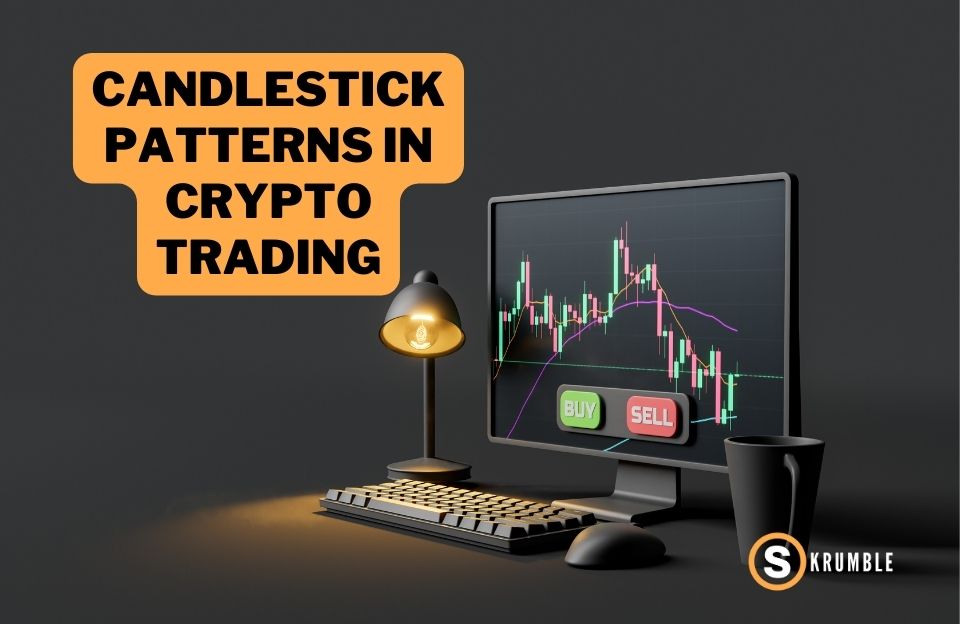Carla Moretti
What are Crypto Derivatives and How They Work?
Carla Moretti

The world of cryptocurrency is expanding at a rapid pace, resulting in the development of complex financial instruments known as crypto derivatives. For anyone seeking to expand their digital asset portfolio, it is imperative to understand what crypto derivatives are, how derivatives trading operates in the crypto market, and the leading crypto derivatives exchanges. This article will delve deep into the realm of crypto derivatives trading, offering insights that can be valuable to both novice and experienced crypto investors.
What Crypto Derivatives?
Crypto derivatives are financial contracts whose value is derived from an underlying cryptocurrency asset. Similar to traditional financial derivatives, crypto derivatives provide a platform for investors to speculate on the future price movements of cryptocurrencies, without necessarily having to own the underlying asset. This approach has opened up new avenues for hedging, risk management, and speculation in the crypto market.
Crypto derivatives essentially offer a way to bet on the future value of a specific cryptocurrency. They have become an integral part of the crypto trading landscape due to their potential for substantial returns, despite the inherent risks.
The Role of Crypto Derivatives in the Market
Crypto derivatives play a vital role in the price discovery process in the crypto market, which is the mechanism by which a cryptocurrency’s price is determined through the interactions of buyers and sellers. They also serve as a tool for managing risk, as they allow traders to hedge their positions and mitigate potential losses. By providing investors with a method to speculate on price movements without holding the actual asset, crypto derivatives contribute to increased liquidity in the cryptocurrency market.
Types of Crypto Derivatives

Crypto derivatives can take various forms, including futures, options, and swaps. Each of these types has unique features and can be utilized for different investment and trading strategies.
Crypto Futures
Crypto futures are contractual agreements that stipulate the purchase or sale of a specific cryptocurrency at a set price on a particular future date. These contracts are standardized and are traded on crypto derivatives exchanges.
Crypto futures provide traders with the ability to speculate on the price of the cryptocurrency at a future date. This means they can potentially profit from both rising and falling markets. Furthermore, futures contracts are a practical tool for risk management as they can be used to hedge against potential adverse price movements.
Crypto Options
Crypto options, another type of crypto derivative, confer upon the buyer the right, but not the obligation, to buy (call option) or sell (put option) a specific quantity of a cryptocurrency at a predetermined price within a certain period.
Options can be a flexible tool in the crypto derivatives space, allowing traders to profit from price movements in either direction or even when the price remains stable. Options also provide a way to hedge against potential losses, similar to futures contracts.
Crypto Swaps
Crypto swaps are contracts in which two parties agree to exchange sequences of cash flows for a set period. In the context of the crypto market, swaps can be used to exchange interest rates or the returns of one cryptocurrency for another.
Crypto swaps provide a method to gain exposure to different cryptocurrencies without the need to go through the process of buying and selling individual coins. They can also be used as a tool for risk management, as they allow traders to change their exposure to specific cryptocurrencies as market conditions change.
Crypto Derivatives Trading

What is Derivatives Trading in the Crypto Market?
Derivatives trading in the crypto market involves the buying and selling of crypto derivative contracts. Traders aim to generate profits from the price fluctuations of these contracts, which are influenced by the underlying cryptocurrency’s price movements.
In the crypto market, derivatives trading has been growing in popularity due to its potential for high returns. However, it’s worth noting that it also carries a high level of risk due to the volatile nature of cryptocurrencies.
Risks and Benefits of Crypto Derivatives Trading
Cryptocurrency derivatives are financial instruments whose value is determined by an underlying asset, such as Bitcoin or Ethereum. The popularity of trading in cryptocurrency derivatives has grown in recent years. While they can provide investors with a way to profit from price fluctuations in the cryptocurrency market, trading in cryptocurrency derivatives is not without risk.
The risks associated with trading cryptocurrency derivatives include:
- Volatility in the Market: Cryptocurrencies are extremely volatile, with prices fluctuating rapidly. This volatility can make derivatives trading extremely risky, as investors may be unable to accurately predict future price movements. If the underlying asset experiences sharp price movements, derivatives trading can magnify the losses.
- Counterparty Danger: Counterparties, or the parties on the other side of the trade, are frequently involved in cryptocurrency derivatives trading. The risk that a counterparty will not fulfill its contractual obligations, which is known as counterparty risk, can lead to losses.
- Leverage: Many cryptocurrency derivatives enable investors to use leverage, or the ability to control a large position with a small amount of capital. While leverage can increase profits, it can also increase losses.
- Regulatory Concerns: Trading in cryptocurrency derivatives is fraught with regulatory risks, as many countries are still developing regulations for cryptocurrency trading. Regulatory changes can impact the value of cryptocurrencies and their derivatives, leading to unexpected price movements.
- Risk of Liquidity: The trading of cryptocurrency derivatives can be illiquid, meaning there may not be enough buyers or sellers to match an investor’s desired trade. This can make it difficult to execute trades and force investors to accept unfavorable prices.
- Operational Dangers: Trading cryptocurrency derivatives necessitates a complex technical infrastructure, and operational risks can arise as a result of system failures, cyber attacks, and other unforeseeable events.
There are ways to mitigate these risks, such as:
- Diversification: Spreading investments across different asset classes and markets can help to reduce risk by limiting one’s exposure to a single asset or market.
- Risk Management Techniques: Investors can use risk management strategies, such as stop-loss orders and options strategies, to manage their risk exposure.
- Due Process: Investors should conduct extensive due diligence before engaging in any cryptocurrency derivatives trade. This includes investigating the underlying asset, the counterparty, and the exchange or platform.
The advantages of trading cryptocurrency derivatives include:
- Achieving Higher Leverage: Derivatives trading allows for the use of leverage, meaning that one can theoretically increase their profits without having to put up a significant amount of capital upfront.
- Lower Transaction Costs: Derivatives are known to reduce market transaction costs.
- Efficiency on the back of Arbitrage: Crypto derivatives trading practices arbitrage, meaning that it plays a role in achieving stability in the market by ensuring that the prices of their underlying assets are accurate.
- Effective Risk Management: As the values of crypto derivative contracts are pegged to their respective underlying assets, they can be used as a way of mitigating the risks associated with the underlying assets, usually by offsetting losses with derivative-related gains.
Top Crypto Derivatives Exchanges
When it comes to crypto derivatives trading, choosing the right platform is of utmost importance. The exchange you select should offer robust security measures, a user-friendly interface, and a variety of crypto derivatives offerings. Here are some top crypto derivatives exchanges that have earned recognition in the field.
Binance Futures

Binance Futures is one of the most popular platforms for crypto derivatives trading. Known for its comprehensive selection, it offers futures contracts with various leverage options and a wide range of cryptocurrencies to choose from. This platform is highly appreciated for its advanced trading features and user-friendly interface, which caters to both novice and experienced traders.
BitMEX

BitMEX is another top crypto derivatives exchange that has a primary focus on Bitcoin derivatives. It offers a variety of contract types, including perpetual contracts and traditional futures contracts. The platform is known for its high liquidity and advanced trading features, making it a top choice for many crypto traders.
OKX

OKX has a reputation for offering a wide range of crypto derivatives. Besides futures and options, OKX also offers swaps, allowing traders to exchange the returns of one cryptocurrency for another. The platform also provides a comprehensive learning center to help traders understand the ins and outs of derivatives trading.
Bybit

Bybit is a growing platform in the crypto derivatives market. It offers a variety of products, including perpetual futures and inverse futures. Bybit has gained recognition for its speed and reliability, providing traders with a seamless trading experience.
Huobi Futures

Huobi Futures, the derivative trading platform of Huobi Global, offers a wide range of services including futures, swaps, and options trading. It provides users with diverse choices and flexible trading experiences. Huobi Futures also has a comprehensive risk management system in place, which is a key aspect when it comes to derivatives trading.
Deribit

Deribit is well-regarded in the world of crypto derivatives, especially for options and futures trading. It stands out due to its focus on Bitcoin and Ethereum, offering a variety of contracts on these two major cryptocurrencies. Deribit is particularly known for its options trading, providing a unique offering in the crypto market.
Each of these exchanges has its strengths, and the choice between them would depend on the specific needs and preferences of the trader. Whether it’s the variety of offerings, user interface, security features, or educational resources, these platforms provide a host of options for anyone interested in crypto derivatives trading. As always, due diligence is important before diving into trading on any platform.
Conclusion
Crypto derivatives have become a vital part of the cryptocurrency ecosystem, providing traders with more sophisticated tools to navigate the crypto market. As the crypto market continues to mature, it is expected that the importance of crypto derivatives will only grow. Understanding what crypto derivatives are, the benefits of crypto derivatives trading, and where to engage in such activities is, therefore, paramount for anyone interested in this rapidly evolving field. Whether you’re a seasoned trader or just starting out, crypto derivatives present a world of opportunities worth exploring.
FAQ
Most frequent questions and answers
The price of the underlying asset plays a crucial role in determining the value of a crypto derivative. Since the value of the derivative is derived from this underlying asset, any change in the asset’s price will directly influence the derivative’s price. For instance, if the market price of Bitcoin rises, the value of a Bitcoin futures contract will similarly increase.
Crypto futures are used as a risk management tool because they allow traders to lock in a specific price for buying or selling the underlying asset in the future. This helps to hedge against potential adverse price movements. If a trader expects the market price of a cryptocurrency to fall, they can enter a futures contract to sell the asset at a higher price at a later date, thus mitigating potential losses.
Leverage in crypto derivatives trading refers to the ability to control a large position with a small amount of capital. While this can lead to increased potential profits if the market moves in the trader’s favor, it can also amplify losses if the market moves against them. Hence, it introduces a high level of risk, especially in the highly volatile crypto market.
In a crypto swap, two parties agree to exchange sequences of cash flows for a set period. This allows traders to gain exposure to different cryptocurrencies without the need to buy and sell individual coins. It can be used as a risk management tool, enabling traders to alter their exposure to specific cryptocurrencies as per changing market conditions.
When choosing a platform for crypto derivatives trading, some important factors to consider are the security measures in place, the user interface, the variety of crypto derivatives offered, and the platform’s reputation in the market. It’s also advisable to consider the quality of customer support and educational resources offered by the platform, especially for novice traders.
Skrumble.com provides all its content for informational purposes only, and this should not be taken as financial advice to buy, trade, or sell any investment instruments or products, including but not limited to cryptocurrencies, or use any specific exchange. Please do not use this website as investment advice, financial advice, or legal advice, and each individual’s needs may vary from that of the author. Investing in financial instruments, including cryptocurrencies, carries a high risk and is not suitable for all investors. It is possible to lose the entire initial investment, so do not invest what you cannot afford to lose. We strongly advise conducting your own research before making any investment decisions. This post includes affiliate links with our partners who may compensate us.
To view our privacy policy read here.






